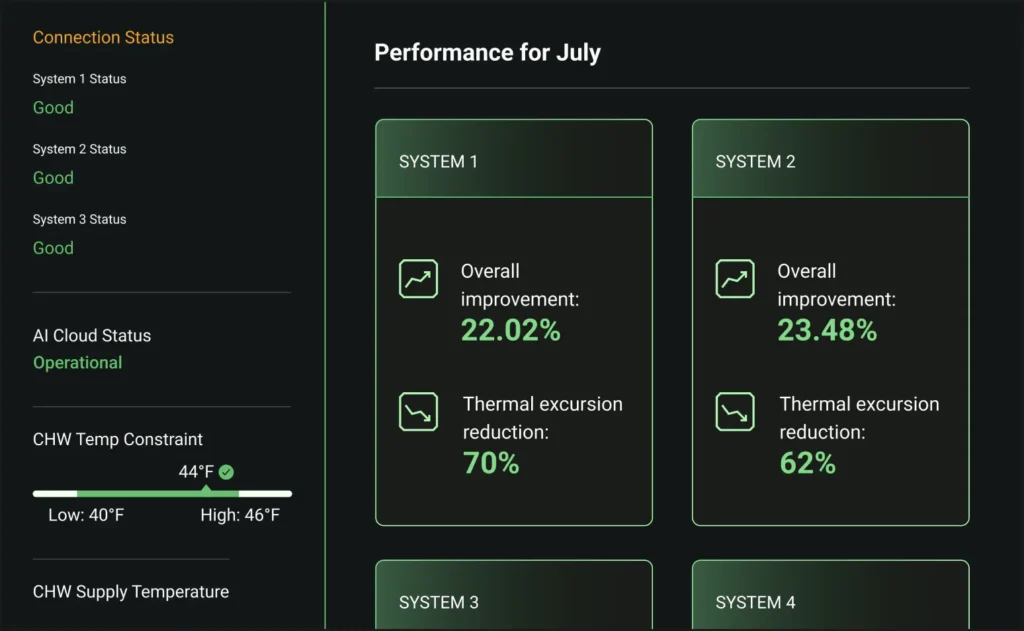The rapid expansion of artificial intelligence (AI) has led to a surge in electricity demand, particularly in data centers.
Goldman Sachs’ Projections
A May 2024 report from Goldman Sachs predicts that data centers could consume 8% of the U.S.’s total power supply by 2030, a significant increase from 3% in 2022. This growth is attributed to cloud service providers expanding their infrastructure to meet the growing demand for AI capabilities.
This increased demand has potential drawbacks. In Kansas, where Meta recently initiated a massive server complex, the power utility Evergy announced a delay in retiring its coal plant.
Experts warn that power-hungry data centers, also known for their high water consumption, could contribute to rising utility costs for consumers, disproportionately affecting low-income individuals.
Phaidra’s Innovative Solution
While the data center power consumption issue appears daunting, the co-founders of Phaidra believe that retrofitting existing facilities for greater energy efficiency is a viable solution.

Launched in 2019, Phaidra specializes in creating AI-powered control systems for data centers, pharmaceutical facilities, and commercial buildings. These systems collect data from thousands of sensors within a facility, making real-time decisions to optimize cooling and energy consumption.
Targeting Cooling Efficiency
Cooling is a major energy consumer in data centers, often accounting for around 40% of total power usage. Phaidra’s service focuses on optimizing this aspect.
Jim Gao, a co-founder of Phaidra, previously led DeepMind Energy, a team within Google’s DeepMind AI research division dedicated to commercializing technology to address climate change challenges.
Phaidra develops customized AI models for each client, trained on sensor data to optimize cooling systems and overall energy management. These models continuously learn and improve based on their experiences managing the facility’s infrastructure.
Combining Physics and Machine Learning
Gao explains, “Phaidra’s unique approach to AI combines physics knowledge of facility operations with learned models of plant dynamics, based on sensor data.
The underlying models start with basic representations of standard components, but the semantics and hierarchy of data are configured uniquely from the actual system.”
While other startups like Carbon Relay have ventured into this space, Phaidra’s primary competition, according to Gao, is “the traditional way of doing things.” Traditional methods involve infrequent manual updates to control systems, while Phaidra’s AI-driven approach provides continuous optimization.
Expanding Beyond Data Centers
Phaidra’s initial customer was pharmaceutical giant Merck, which utilized their technology to control a 500-acre vaccine manufacturing plant. However, the company’s clientele now leans heavily towards the data center sector, driven by the surge in AI applications.
Phaidra was selected as a finalist in the Amazon Sustainability Accelerator, offering a chance to pilot their technology in Amazon’s European operations with potential investment.
The company also recently secured $12 million in funding led by Index Ventures, bringing its total raised to $60.5 million. This capital will be used for R&D, implementation, customer support, and expanded market reach.
SaaS-Based Business Model
Phaidra’s revenue model involves charging an annual subscription fee for its AI solution, which is determined based on the facility’s complexity and local energy prices.
With a team of approximately 100 employees and plans to grow, Phaidra aims to leverage its funding and expertise to capitalize on the increasing demand for energy-efficient solutions in data centers and other industrial sectors.